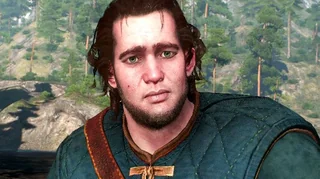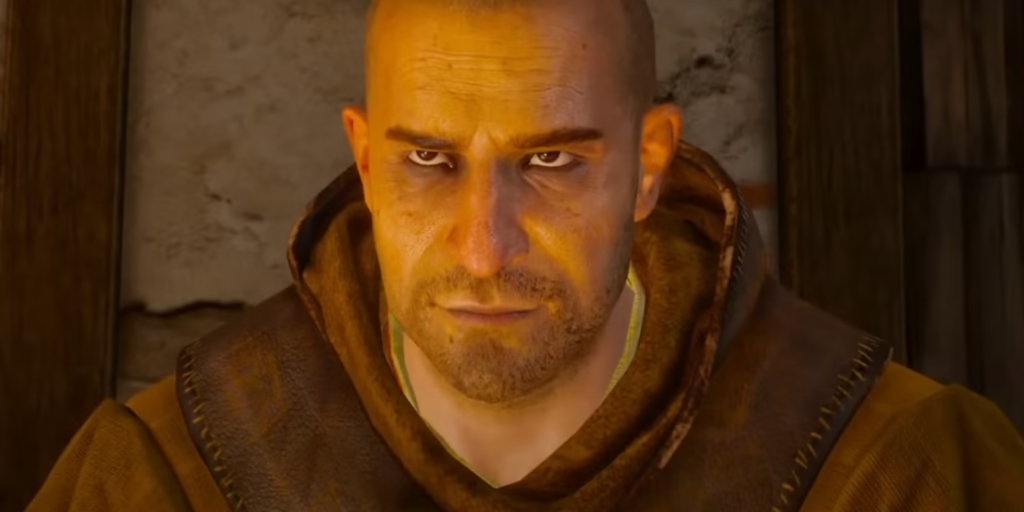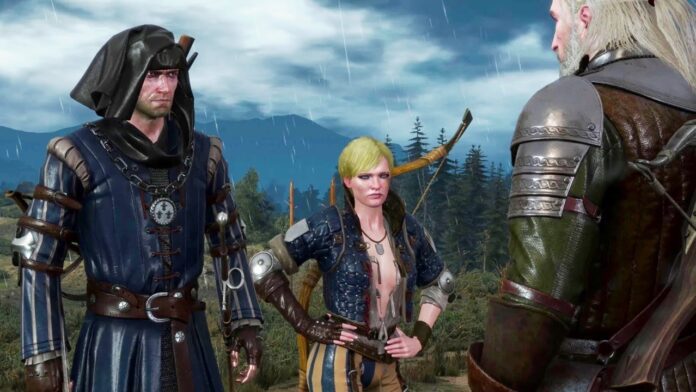The Witcher 3 hides terrible choices darker than any monster. See the 7 Terrible Things You Can Do in Witcher 3 and the worst decisions that haunt players.
In The Witcher 3, your sword is not the sharpest thing in your arsenal. It’s your choices. Behind some monster hunts, political missions and even the main quest hides a quiet moral test that reveals who you really are. Even though the game doesn’t provide you neat morality meters i.e. no “good” or “evil” icons and bars lighting up the screen, keep in mind that every decision leaves ripples in the world, and sometimes, those ripples can drown entire lives or your own. From betrayals to moments of cold indifference, this list covers the 7 Most Terrible Things You Can Do in Witcher 3. These are not small mistakes. These are some of the worst decisions in Witcher 3 that can put a stain on Geralt or Ciri’s soul forever.
Before you begin, you may also read our Witcher 3 review here.
#7 – Not Giving Skjall a Proper Funeral

Skjall was no king or hero. Just a young Skellige boy who risked everything to protect Ciri when no one else would. His courage was repaid with mockery and eventually death. When you later revisit Skellige with Ciri, she wants to find and bury his corpse– you can either honor him or walk away. Ignoring him doesn’t destroy the world, or even hurt any innocent life, but it destroys a part of what makes Geralt human; at least in Ciri’s eyes. Leaving him to rot is one of the quieter yet Terrible Things You Can Do in Witcher 3, because it shows that indifference can be more brutal than hatred. In the sea of the worst decisions in Witcher 3, this one feels deeply personal.
Also check out top 9 saddest deaths in Witcher 3
#6 – Taking Emhyr’s Money in Front of Ciri
After the Battle of Kaer Morhen, you can choose to meet Emperor Emhyr once again to inform him you found Ciri. He offers Geralt a hefty reward for bringing Ciri back to him. You can refuse it or take it right in front of her. If you accept, the look on her face says everything. You have just turned love into a transaction. Yes, this might seem normal for a witcher- taking money for a contract. But here, you’re not being paid for a slaying a monster, you’re accepting money for finding and saving your own daughter. It’s a small scene but one of the most emotionally devastating moments for Ciri, because to her it makes it seem like whatever Geralt did for her, he did it for the coin. Among the worst decisions in Witcher 3, this one cuts deep because it’s about dignity, not death.
#5 – Romancing Both Yennefer and Triss
Geralt of Rivia, monster slayer, giant slayer, vampire hunter and philosopher, but he can also choose to act like a professional idiot! Most players have tried this once- romancing both Triss and Yennefer. You flirt with Triss in Novigrad, then try to impress Yennefer’s eyes in Skellige, getting back with your long-lost ex, thinking you can have both. The result? We are not going to spoil it, in case you haven’t experienced this yet. But all we can tell you is that the outcome is funny. However, it can be emotionally devastating for both Yennefer and Triss, the two witches who risked their lives to protect Ciri. Out of all Terrible Things You Can Do in Witcher 3, this one may not kill anyone, but it shows the kind of heartlessness only arrogance can breed.
#4 – Letting Gaunter O’Dimm Take Olgierd’s Soul

In the Hearts of Stone expansion, Geralt meets Gaunter O’Dimm, who is soon revealed to be the embodiment of pure evil itself disguised as a charming, wise and polite man. When O’Dimm comes to collect Olgierd von Everec’s soul, you can intervene or stand aside. If you let him take his soul, you can earn a reward, but letting him take it means watching the devil himself win, as Olgierd’s soul is dragged into eternal torment. Olgierd is no saint, he has done some terrible things no doubt, but he’s a tragic figure whose curse came from pain and guilt, not malice. Standing there in silence makes Geralt complicit. This act defines why the game’s moral choices sting so hard. Of all the worst decisions in Witcher 3, this one shows that sometimes, doing nothing can also be a real sin.
Check out 7 Fictional Characters Who Can Beat Gaunter O’Dimm
#3 – Killing Keira Metz
Keira Metz cane be a bit vain, manipulative and selfish. But she also risks her life to help Geralt track down Ciri. At the same time, she is also just a woman trying to survive in a world that has started to despise magic. All she wishes to do now is survive and get back her lost dignity. Yet in her final side quest, you can turn that dream into a death sentence. If you draw your sword and kill her, Geralt loses more than a friend. He loses a piece of hope. Later, when Kaer Morhen burns and she’s not there to aid you, her absence might even lead to Lambert’s death if you are not careful. Her actions do seem selfish, but they are not worthy of death. Killing her is another one of those Terrible Things You Can Do in Witcher 3 that you can’t take back.
#2 – Killing the Botchling Instead of Lifting the Curse
When the Bloody Baron’s tragic quest begins, you meet a creature that defines horror. The Botchling is a cursed stillborn child, grotesque yet pitiful. Geralt can perform a ritual to free it, turning it into a guardian spirit, or he can simply kill it. Choose violence, and you’re not just ending a curse; you’re killing an innocent being that never got to live. However, killing the Botchling is not easy, especially because you are quite underleveled early on in the game, implying that the game wants us to choose the peaceful decision instead. In a game built on moral grayness, this is one of the worst decisions you can take in Witcher 3 because it’s so utterly human in its cruelty.
#1 – Letting Roche and Ves Die (Siding with Dijkstra)

At the very end of the political arc, Reason of State, Geralt faces a choice that defines loyalty itself. Dijkstra, the cunning schemer, wants absolute power over the North. Roche, Ves, and Thaler however have agreed for Temeria to exist as a vassal under Nilfgard. You can choose to stand with them and kill Djikstra and his men, or you can stay neutral and let one of your closest friends and allies die. Watching Roche fall; the man who risked his life for you in Witcher 2 and later during the Kaer Morhen Battle is nothing short of brutal. Sadly, it is this decision that leads to the best political outcome, as Djikstra becomes king, and he is not a sadistic ruler like Radovid nor a narcissistic sociopath like Emhry. However, all Witcher fans know that Geralt would canonically never let Roche and Ves die. Although the game allows us to take this decision, it is one of the most terrible things you can do in Witcher 3.
This isn’t about gold or politics anymore. It’s betrayal in its purest form. Of all Terrible Things You Can Do in Witcher 3, this one is the ultimate fall from grace.
Every choice in The Witcher 3 feels real because it never tells you what’s right or wrong. It lets you find out the hard way. You can finish the story as a righteous hero or someone who is terrified of whom you have become, depending on what you’ve done. But if you’ve committed these worst decisions in Witcher 3, don’t worry; you’re not alone. Almost every player has experimented with them, and these kind of choices add replayability to the game, making us play it again and again.
